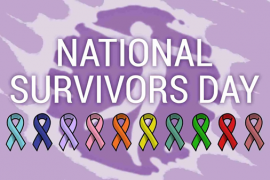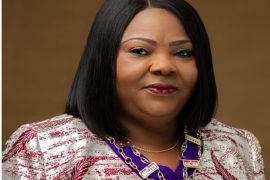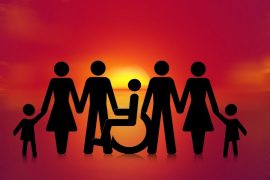After the Millennium development goals (MDG’s) ran for its stipulated number of years, the United Nations in 2015 came up with the Sustainable Development Goals (SDG’s) which singled out women-related issues as one of its key focuses.
There have been several efforts geared towards not only bridging the gender gaps across the world, but also ensuring that women empowerment that will on the long run yield financial independence among women serves as a veritable tool to achieve these goals.
Several organisations and individuals have come together in different forms to contribute their quota towards improving the mode of living for women who largely feel vulnerable and marginalized and one of these organizations is the United States Agency for International Development (USAID).
For decades, USAID has partnered with the Government of Jordan and civil society organizations to support the well-being and empowerment of women and girls. With an education system that ensures equal access to both genders, Jordan has a highly educated female population that will help benefit Jordan in the future.
Despite ongoing progress, women in Jordan remain underutilized and often sidelined in society due to enduring norms and traditions. USAID’s programs support institutions that fight gender-based discrimination by expanding social dialogue on gender equality, strengthening enforcement and advocacy for female empowerment, and improving services for women and girls.
The Jordan Health Communication Partnership Project helped produce a TV spot highlighting Islam’s support for gender equity within the family. Despite having closed or reversed the gender gap in female education at all levels, Jordan continues to have one of the world’s lowest rates of female participation in the workforce. Only 16 percent of Jordanian women participate in the economy.
There is support for improvement among government leadership, but policies may not be implemented, resources and leadership are lacking, and there are discrepancies between constitutional rights and local social norms and traditions.
Constraints on women’s political participation also persist despite expanding quotas for women in national and municipal bodies. Traditional beliefs and norms within families and communities are major barriers to both males’ and females’ life choices and aspirations. Furthermore, violence against women is prevalent and underreported due to social and familial pressures.
Compounding the problem is the influx of Syrian refugees over the past few years where the incidence of gender-based violence is high and early marriage among the refugee population stands at 33 percent.
Some of the current programs of USAID in Jordan are:
USAID implements gender-based programs across all sectors. In 2015, USAID supported the launch of Girls in Tech’s Jordan chapter
USAID implements gender-based programs across all sectors. In 2015, USAID supported the launch of Girls in Tech’s Jordan chapter, which supports women working in technology fields.
The Mission works with its implementing partners to advocate and promote gender equality across all programs and sectors. Support is not limited to the health and education sectors; female entrepreneurs and business owners have also benefited from USAID-supported microfinance and business development programs. Women have also been empowered to play an active role as citizens and policy makers.
USAID’s current strategy is to implement cross-cutting activities that mainstream gender throughout USAID programs and enhance gender equality and women’s empowerment. Programs promote changes in discriminatory social norms and practices, enhance advocacy and policy reforms, expand access to female-centered services, and encourage women’s participation in the economy.
To build on previous efforts and achievements to date, USAID has also launched a three-year project called USAID Takamol Gender program. Takamol is working to empower government, civil society institutions and individual change agents to address challenges facing gender equity, gender mainstreaming and female empowerment.
Some of the organisations achievements thus far include:
It funded the development and updating of a national strategy for women and the first comprehensive gender assessment to improve social development policies and services delivered to women.
It has identified gender discrimination in areas such as fiscal reform, social security, and civil service employment; helped develop options for more equitable new laws.
It has trained 100 female community health workers, who visit nearly 400,000 Jordanian women quarterly to counsel them on women’s health issues and modern family planning methods.
It supported the revision of penal code articles related to violence against women; mobilized non-governmental organizations’ community health workers and leaders to reach 460,000 women on preventing and addressing violence against women; institutionalized training programs and procedures for the detection and referral of gender-based violence cases in 17 private hospitals.
It Trained 1,707 young women lawyers and judges on human rights and gender-related laws.
It provided technical support to women parliamentarians, which helped usher in Jordan’s first women’s caucus in Parliament.
It trained 11,284 Ministry of Education female educators, teachers, principals, and supervisors on how to improve their teaching and leadership skills and empower students.
It raised public discourse on gender issues by training hundreds of journalists to cover women’s issues and convening more than 1,000 community based dialogues on gender issues.
It reached 3,587 women and provided awareness sessions on personal status laws, domestic violence and human rights laws.
Usaid Jordan




